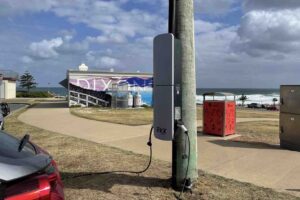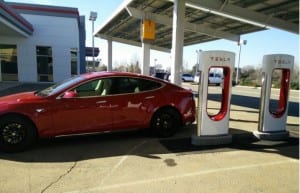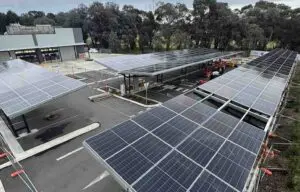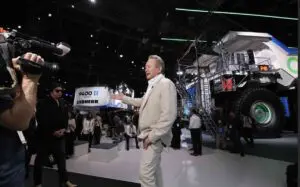The new head of the biggest network distribution company in Australia’s main grid has dismissed suggestions that the switch to electric vehicle will blow up the grid, saying tariff design will help solve any problem areas.
Marc England, who took up his new role as CEO of NSW-based Ausgrid two months ago, said any issues with massive amounts of electric vehicle charging can be easily solved.
“I’m not a subscriber to the narrative that when all these EVs arrive and are plugged in that they will create problems for the grid,” England said in one of the panel discussions held at the Fully Charged Show held in Sydney over the weekend.
“There will be problems in some areas, but pricing signals … as we have learned at Genesis Energy in New Zealand, can change consumer behaviours when they charge, so we can solve a lot of stuff with pricing signals.”
England also says it is wrong to assume that just because a new load has been created with the arrival of electric vehicles that the grid will have to be massively expanded to cope with the biggest anticipated demand.
“The simple answer is no, because you don’t need to charge your EV every day, and you don’t need to charge a car at 6pm. There are ways of distributing that demand and making sure you don’t have to build the grid for the biggest moment of the biggest day.”
That in itself shows the evolution of network thinking about demand and supply. A decade or more ago expanding the grid to meet peak demand was the very problem that caused network charges to soar and led to accusations of “gold plating.” In many regions, consumers are still paying the cost.
But there is now greater focus on shifting demand, to ensure that it does not all come at one time. Tariff structures are one way to shift demand, and EVs will offer more possibilities because of vehicle to grid technologies that will allow them to add to the supply in the grid.
England says he does not expect V2G to happen at scale any time soon, observing that car makers are the ones not keen because of the potential degradation of batteries. The views of Tesla boss Elon Musk are a case in point.
“I think it’s one of those things where just because it can be done it doesn’t mean it will be done,” England said.
“And I think the big hurdle is the car companies who will see the degradation of batteries happen much quicker, so there will be less years of warranty. So car companies don’t really want it.
“It’s a nice idea and technically possible. But I’m not sure we’re going to see it develop really quickly this decade. ”
England is a former head of the “new energy” business at AGL, Australia’s biggest coal generator and polluter, before heading over to New Zealand to head the local energy company Genesis Energy in 2016. He said during his time there he was surprised by the “anti-EV” narrative conducted in Australia.
“Watching the media in Australia and New Zealand, I was always surprised by the anti lobby discussing why not EVs in Australia, but I think that’s diminishing now.”
For coverage of the Fully Charged Show, please go to our EV-focused sister site The Driven.










